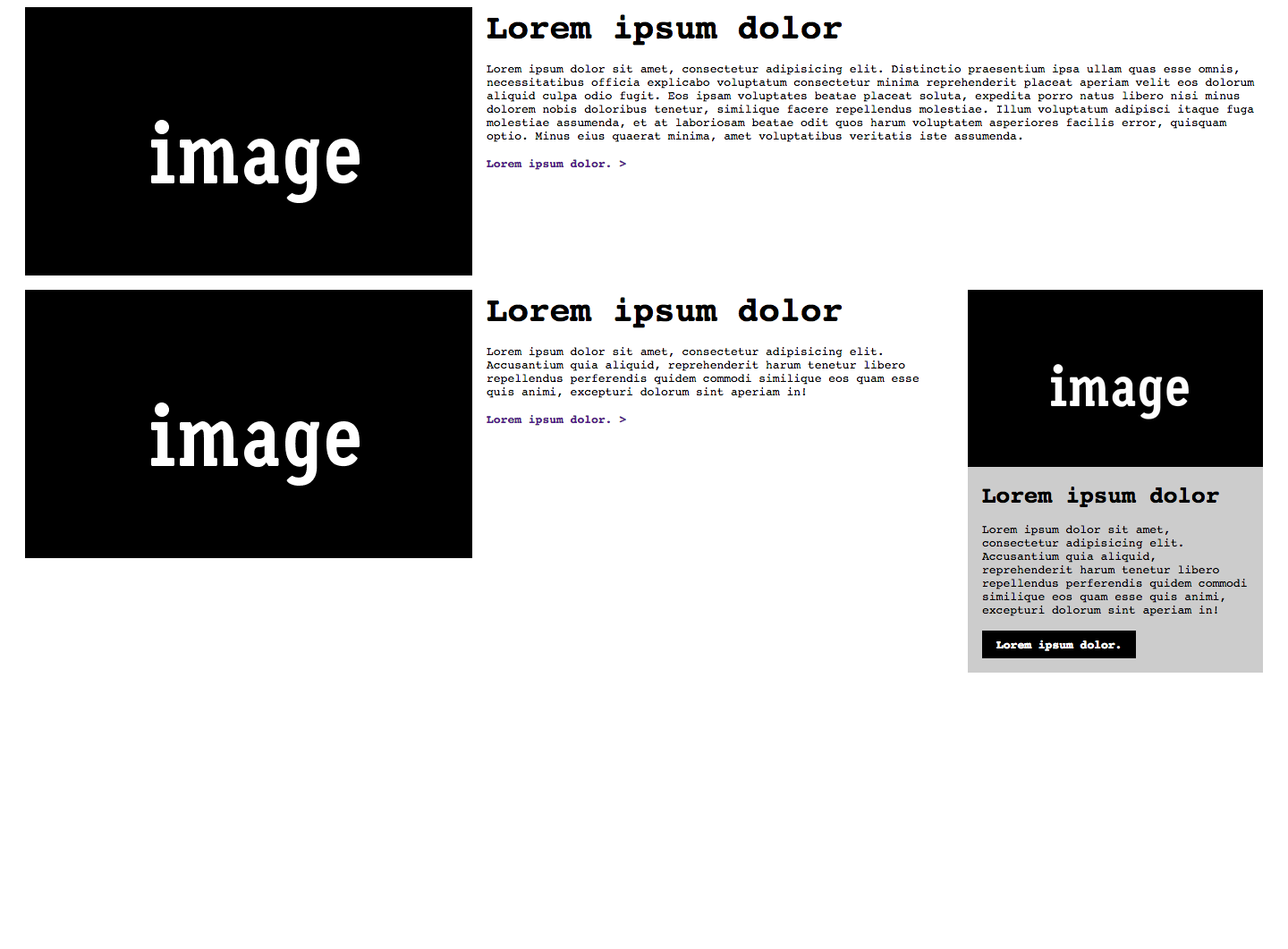- From: Daniel Martínez <wakkos@gmail.com>
- Date: Mon, 20 Oct 2014 22:54:54 +0200
- To: Kevin Mack <kmack418@gmail.com>
- Cc: Steve Claflin <steve@steveclaflin.com>, "public-respimg@w3.org" <public-respimg@w3.org>
- Message-ID: <CANvfLbaw0=tL2c+6wYDKFYmq3nqqn5R8QnBL5TwWeNzvSksaZg@mail.gmail.com>
I like @tysonmatanich proposal for element queries syntaxis (
https://github.com/tysonmatanich/elementQuery)
This rule queries itself for a *single* condition:
header[min-width~="500px"] {
background-color: #eee;}
This rule queries itself for *multiple* conditions:
header[min-width~="500px"][max-width~="800px"] {
background-color: #eee;}
This rule queries a *parent* for a condition:
header[min-width~="31.250em"] nav {
clear: both;}
This rule queries *itself* and a *parent* for conditions:
header[min-width~="31.250em"] nav[min-height~="1em"] {
color: #333;}
On Mon, Oct 20, 2014 at 10:46 PM, Kevin Mack <kmack418@gmail.com> wrote:
> Thanks for the response, Steve.
>
> iframes render the inner client width, so it treats the width of the
> iframe's content as the viewport width of the inner content.
>
> This approach would not work for @srcset, but it would work with picture
> element and provide the first really good use case for it. This is because
> media types with features can be used with <picture /> and I'm just talking
> about a new media type.
>
> I'm not sure if I follow your min/max content-width concern. My initial
> thoughts would be that the @media content type would be an issue with
> repaint and reflow for page render due to affects of text styling, similar
> to issues around box model.
>
> Did you see the example I did for this:
>
>
>
> Thanks again!
> *Kevin Mack*
>
> On Mon, Oct 20, 2014 at 12:32 PM, Steve Claflin <steve@steveclaflin.com>
> wrote:
>
>> New here, but weighing in...
>>
>> I'm not fond of that concept as written. It seems like a misuse of media
>> queries to me. Although that makes me wonder what the media query width
>> measurement base is for an iframe - the iframe or the containing window?
>>
>> But, I do like the possibility of a pseudo selector:
>>
>> .nav:max-width (300px)
>>
>> .nav:max-width (30em)
>>
>> "An element with the nav class whose width is less than or equal to ..."
>>
>> And, of course, min-width as well. Probably only valid for block
>> elements.
>>
>> For any element:
>>
>> h3:min-content-width (10em)
>>
>> Where min and max-content-width measure the unwrapped width of the
>> element (font metrics). That has the potential for ping-ponging, though
>> (if the width is in px and the rule shrinks the font, for example).
>>
>> Also, it seems like anything along these lines is outside the scope of
>> responsive images :(
>>
>> Steve Claflin
>>
>>
>>
>> Sent from my Verizon Wireless 4G LTE smartphone
>>
>>
>> -------- Original message --------
>> From: Kevin Mack
>> Date:10/20/2014 9:45 AM (GMT-05:00)
>> To: public-respimg@w3.org
>> Subject: Re: Element Query and Selector Media Query Types
>>
>> Wanted to see if anyone else had any thoughts/opinions on *Element Query
>> and Selector Media Query Types*? I want to really start pushing these
>> but I want to make sure that I have support of the community and these have
>> been thought-through.
>>
>> Let me know, it's very appreciated // Thank you!
>> *Kevin Mack*
>>
>>
>>
>>>
>>
>
--
*Daniel Martínez*
@wakkos <http://twitter.com/wakkos>
*Frontend & CSS Architect*
Attachments
- image/png attachment: larger.png

Received on Thursday, 23 October 2014 20:48:12 UTC